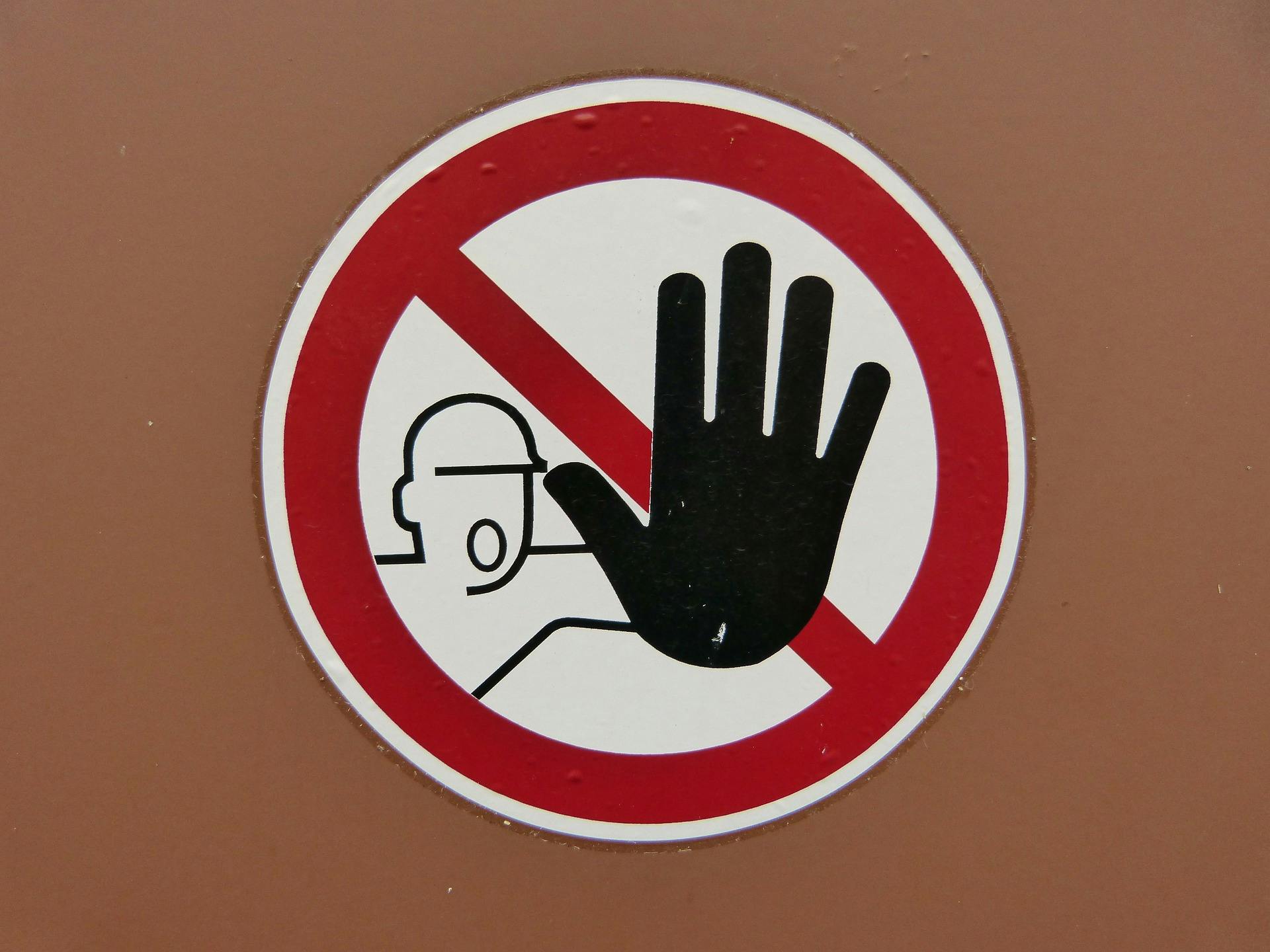Every industry has its own rules and regulations concerning safety. To help you spot dangerous situations in different workplace surroundings, we have conducted an overview of standard unsafe work practices every company should be aware of!
- Common Workplace Safety Fails
- 1. Ignoring Signs
- 2. Skipping Out on Training
- 3. Drinking, Smoking, and Drug Abuse
- 4. Wearing Inappropriate Gear
- 5. Using Inappropriate Equipment
- 6. Skipping on Maintenance
- 7. Skipping on Cleaning and Securing
- 8. Doing It All By Yourself
- 9. Coming In Sick
- 10. Bad Transportation Choices
- Work Industry Fails – Specific Fails
- Hospitality Safety Fails
- Business Workplace Fails
- Manufacturing Safety Fails
- Warehouse and Construction Safety Fails
- Healthcare Safety Fails
- Transportation Safety Fails
- Preventing Unsafe Work Practices
Did you know that Monday is the most dangerous day of the week?
It would make sense that coming to work after a few days’ rest would make you more aware of the possible safety hazards, but the truth is that sometimes being out of practice makes you react slower to possibly dangerous situations. Plus – no one likes Mondays.
All jokes aside:
Working in different industries brings different responsibilities. Still, some things are common for all of them.
And while some unsafe work practices are merely common sense – bear in mind that even common sense varies from person to person. Before you go googling: OSHA fails, keep an eye out for the frequent ones, and do your best to prevent them!
You can also download this workplace safety checklist to proactively avoid unsafe practices:
Avoid unsafe practices!
Download this checklist to avoid unsafe work practices.
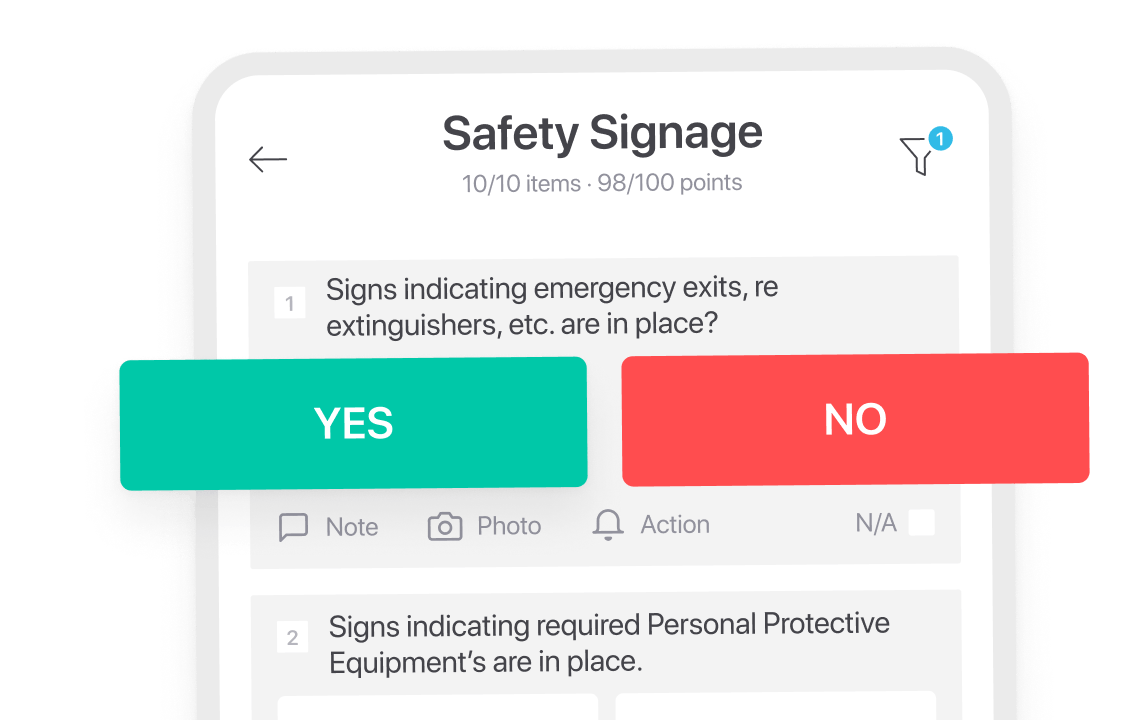
Common Workplace Safety Fails
Did you know that workers have the right to refuse to do any work they find unsafe?
As a worker, if you ever get into a situation that you see as hazardous (or rather, unreasonably dangerous), you should inform your superiors immediately. In case they don’t want to listen to you, you can always ask for a compliance audit with OSHA or simply report the situation to them, via phone or email.
As an employer, you should keep your eyes on potentially dangerous situations.
Prevention goes a long way.
To help you prevent or notice dangerous work behavior, we created a list of unsafe work practices to watch out for.
Here it goes:
1. Ignoring Signs
In all honesty, we’ve all taken some signs for granted, like saying not to throw paper towels in the toilet. We should train our eyes to notice them, and acknowledge those that we find to be new.
They are there for a reason.
Yes, the wet floor is slippery, toilets do get clogged, but signs are there not to preach or bore you, but to inform you and prevent any misfortune, like learning where your work’s emergency exits are or what to do in case of a fire.
We all thought everyone knew how and when to wash their hands, but the coronavirus proved us wrong. Next time you find yourself at work, do look at the signs again. You will learn something new.

2. Skipping Out on Training
Depending on the type of business your job is in, you will likely come across some training.
It could be either a paper you should read or a lecture you should attend.
It goes without saying that as someone doing already hazardous work (like doctors), you will be obliged to complete the training. If you refuse, chances are you won’t be able to continue working. But as for office jobs – they tend to be somewhat aloof when it comes to attending training.
Interestingly, office workers are good at making excuses to avoid training, too.
“I’m swamped, I have a deadline to meet,” “I’ll be in meetings with the client all day, I can’t postpone that,” or just “I will sign the paper and just pretend I’ve read it, I probably already know all that’s in it”… now, do these seem familiar?
Yet not knowing the new rules concerning safety, or new ways of prevention comes at high stakes. You just might find yourself ignoring unsafe work practices and being unable to act when the time comes.
3. Drinking, Smoking, and Drug Abuse
Although, ideally, you shouldn’t be doing any of the above at any time in your day, you certainly shouldn’t be doing those at work, and if you must, stick to designated times (like brakes) and designated spaces.
There are plenty of reasons for that, not just security-wise.
After all, work is where you simply have to show yourself in your best light if you want to advance. Being addicted to any of the substances won’t help you do that. And sure, some people say that you can’t compare cigarettes to drugs, but an addictive tendency shows that you are easily manipulated and don’t have your life priorities in order or can’t deal well with stress.
Still, people often look at a celebratory glass of alcohol as an act of support – like at times when you have a colleague retiring.
There are polite ways to go about it. One of them is offering to go out for drinks with that colleague outside of working hours.
A blurry mind means that you are unable to make fast and rational decisions you would otherwise. If you find yourself in a hazardous situation and under the influence, you are less likely to deal with the incident safely and correctly.
As for cigarettes – not even smokers like the lingering smell of cigarettes on a colleague working close to them, plus smoking in an undesignated area can lead to a fire hazard and a health hazard for people in presence.

4. Wearing Inappropriate Gear
If your job requires you to wear a uniform or special gear, please do wear it.
Especially if you’re working at an already dangerous job, there is no excuse for not wearing a hard hat on a construction site.
And please, please do stay away from improvising. Protective gear is there, as the name tells you, for your protection, and if there were an alternative to wearing it – you would be wearing it as a protective gear. After all, hours and hours of thought, design, trial, and tests go into creating it.
As for uniforms, they too can have a protective purpose, even if it is just knowing which person to alarm in case of an emergency. Imagine being in a restaurant, seeing a fire start, and then spending unnecessary time looking for the restaurant’s employees to tell them about it.
5. Using Inappropriate Equipment
Using inappropriate equipment is an unsafe work practice, just as wearing improper gear is. Again, don’t improvise and don’t think you know better than people who have created the equipment for you. Plus, do understand that if you are using material intended for other actions, you are ignoring manufacturer’s safety guidance, and hence possibly ruining the equipment (a blender will likely break if you throw rocks inside, won’t it?).
Falls and injuries are among the most common working failures, even in places you think are the safest, so do be careful at all times. You have probably witnessed hazardous occasions yourself, like standing on top of a chair to reach something high up. However benign that would seem, this is a common mishandling. Remember, if a chair were to be used as a ladder, it would have been called a ladder, right?
6. Skipping on Maintenance
If it’s one of your duties to take care of regular maintenance of some of your work equipment (even if it’s just the espresso machine!), don’t be lazy or forget about it! Electrical hazards are more common than we would like to think, so it is highly essential to do everything you can to prevent them.
But that’s not all to look out for.
Regular maintenance includes every action that keeps your workplace as safe and secure as possible: from painting the walls, taking care of the hygiene, to any repairs in the space that are needed.
You shouldn’t ignore a wobbly stair, even if everyone else hops past.
7. Skipping on Cleaning and Securing
Clean up after yourself.
It’s as simple as that, yet it seems like this phrase has not been imprinted into our minds enough, even though we all hear our mother’s voice in our head when we say it.
You must leave your workspace just as you have found it – or even in a neater state, if that’s possible. A slippery floor, unwashed dishes, messy cables, unlocked cabinets, or inaccessible doors – all those come under unsafe work practices.
So, let’s repeat:
Clean up after yourself.
8. Doing It All By Yourself
What is your job position?
Do you know your exact responsibilities?
Sure, it is nice to show that you are hard-working, helpful, a great colleague to work with, and a great employee, worth the investment. But please, please, don’t volunteer to fix something as an electrician if you are a product manager!
Doing something just because you believe you know how to do it, although you have no proper training to prove your skills, can be very dangerous. If something goes wrong, you are creating risks (both safety or financial), and it is quite likely your company will get the blame on safety accountability grounds, just for letting you do it.
So please, just stick to what your job is, and if you need a specialist, just outsource someone. However, complicated that may be for your business; it is still a safer option.
9. Coming In Sick
In this day and age, coming in sick to work is very irresponsible. Please note that we are not talking about serious illnesses, but rather about those days when you feel like you are about to get a cold or your stomach is feeling unwell.
You are not your best when you are unwell (meaning that your focus is not as strong, and you are likely to make mistakes at work), and you are highly susceptible to getting your colleagues sick.
Sure, some companies make it difficult to take a sick day – and some workers can’t afford to skip a day or two of work. Internal laws differ from company to company: do your best to earn that sick day when you need it, or work as hard on preventing sickness as possible. Take care of employees who don’t offer any sick leave and try and find a job that won’t have a problem with you taking a day off to feel better.
After all, you do deserve that.

10. Bad Transportation Choices
Another common sense question is to be careful about your transportation during your work hours. Just like it was when you went to school – your work environment is responsible for your wellbeing. Don’t abuse their trust. You might get yourself in trouble and cause dangerous behavior that may hurt others or hurt the company’s property.
So:
Don’t use your company’s car if you don’t have permission to do so.
Don’t use your company’s vehicles for any work outside their primary intention.
Don’t get into an unofficial taxi to go to a meeting.
And overall, be careful.
Work Industry Fails – Specific Fails
Some actions present a more significant hazard in one industry than they would in another.
Do note that it doesn’t matter if you are an employer or an employee, as both those positions have the power and the responsibility to prevent unsafe work practices. You spend a significant amount of your time in your workplace, after all. Make it as pleasant as it is in your power!
To help you get a better idea of unsafe work practices (that you should always avoid!), here is a closer look into different industries or, rather, work categories.
Hospitality Safety Fails
The U.S. travel and hospitality industry supports almost 8 million jobs (data for 2017, with things likely to change dramatically in the coming years), and includes different job types and different work positions in restaurants, cafés, hotels…
The hospitality industry is where you work closely with people, so their health and wellbeing represent a top priority. Everything the guest comes in contact with should be spotless and error-free: food, venue, sights, communication. Because a client is always right, as they say, and this industry depends significantly on customer reviews and word-of-mouth.
Unfortunately, we have all heard of encounters with unsanitary bathrooms and food poisoning.
That’s why hotel security, restaurant manager checklists, and restaurant pre-opening checklists are systems that help maintain the safety of the space where the guest is spending time.
Skipping out on training (if it’s even something you can manage to do) is absolutely forbidden, as would be skipping on cleaning, securing, and especially coming in sick.
If you are just becoming an owner of the business and buying a pre-owned restaurant, for example, as is often the case in this industry, don’t hesitate to organize a due diligence checklist to keep you secure on all safety grounds.
Business Workplace Fails
You would think that working behind a desk all day is only bad for your back and eyes, but office failures happen more often than you would realize.
Falls and injuries, unsafe use of equipment, and electrical failure are daily in a business workplace. Unfortunately, there are not enough obligatory systems (like training) that would help prevent office safety fails. People think that the business environment is, health and security-wise, the safest of them all, but that is not the case. Human-made errors are common, so you should never ignore signs that draw your attention to any hazards or changes in the way your workplace works, and you should never take on a role outside of your position requirements.
Manufacturing Safety Fails
Whether you are concerned about brewery safety fails or are on your way to creating a new line of clothing and are interested in the subject – manufacturing fails usually include the misuse of equipment or gear, due to the lack of training, budget, or common sense.
As the manufacturing business relies significantly on productivity, they mustn’t have any breaks in time the machines (and people) spend working. That’s why, ensuring the safety of the environment is crucial, but, unfortunately, often relies on simple paper checklists and not more sophisticated systems, such as mobile inspection software for manufacturing. This industry is sometimes difficult to control due to the ever-growing number of small private businesses, which is why you should create your own safety rules and outsource professionals to help you out when needed.
If you work in the manufacturing business, always wear appropriate gear, use proper equipment, and never skip maintenance. If you try to be as cautious as possible, you are protecting not only the business you are in, your health and wellbeing but also your colleagues’ wellbeing.

Warehouse and Construction Safety Fails
These are the places where people are in touch with considerably dangerous machines, often working at high heights or in uncomfortable positions. Some jobs need to be done by people still, so ensuring their safety in hazardous situations is tricky but necessary.
Construction safety fails, and warehouse safety fails are common but avoidable if workers are calm, focused, and rested. That’s why it is crucial to know precisely what your position entails, wear appropriate gear, use proper equipment, and keep your eyes open for safety risks.
Doing safety inspections of the job site on a regular basis is key to preventing safety incidents.

Healthcare Safety Fails
Health care and the care industry, in general, are very complicated when it comes to the prevention of unsafe work practices, as everything revolves around people’s health and safety. You simply cannot become a healthcare worker if you are not proficient with healthcare safety regulations. Still, accidents happen as a cause of the workers’ exhaustion or, rarely, by their lack of knowledge or experience.
Try to make an example of yourself as a healthcare worker. Take care of your appearance (clean uniform, appropriate gear), be cautious of the wellbeing of others around you, and always use proper equipment. If unsure about anything, don’t hesitate to ask your more experienced colleague for help.
Transportation Safety Fails
A preventive maintenance checklist and vehicle inspections (like truck inspections) are completely mandatory in the transportation industry. If anything goes wrong, the first question to ask will be: when was the last time you had your vehicle checked? And although some sectors (like the airline industry) are more strict than others, as a business owner, you should ensure vehicle safety checklists to keep your equipment, your workers and your clients as safe as possible:
Ensure vehicle safety!
Download this checklist to ensure vehicle safety.
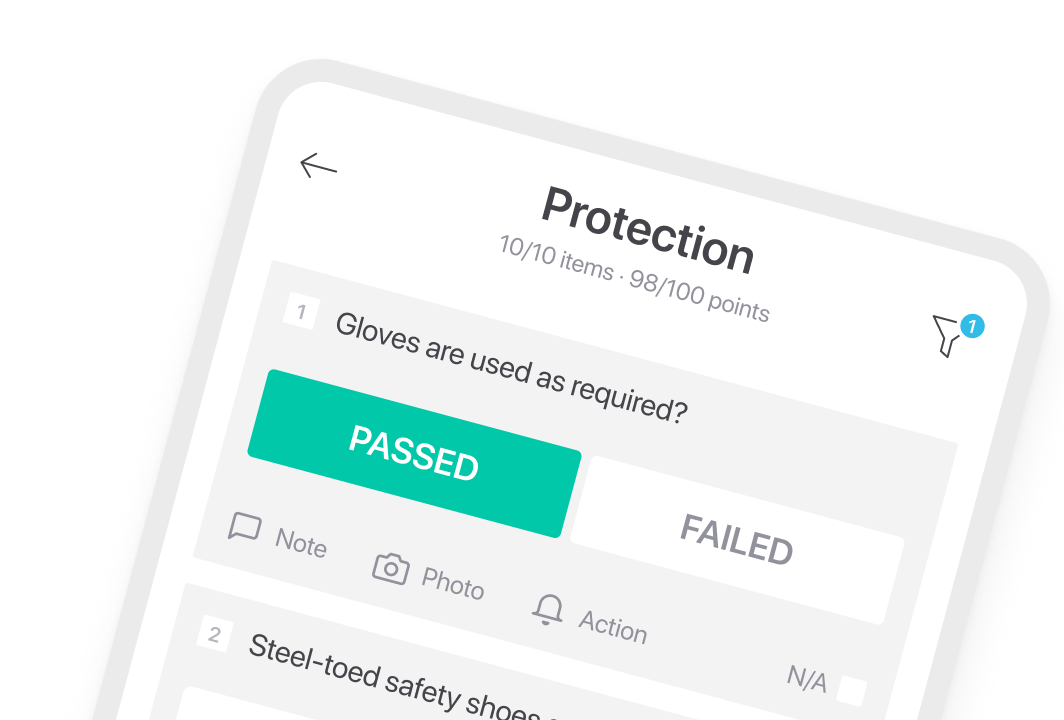
Planning here is critical, even though you can’t predict future events. Know your route well, know your machine well, and your cargo, too. Never skip on the maintenance of your vehicles, be sure you are up to date with the rules and the norms and keep your eye on any possible safety hazards.
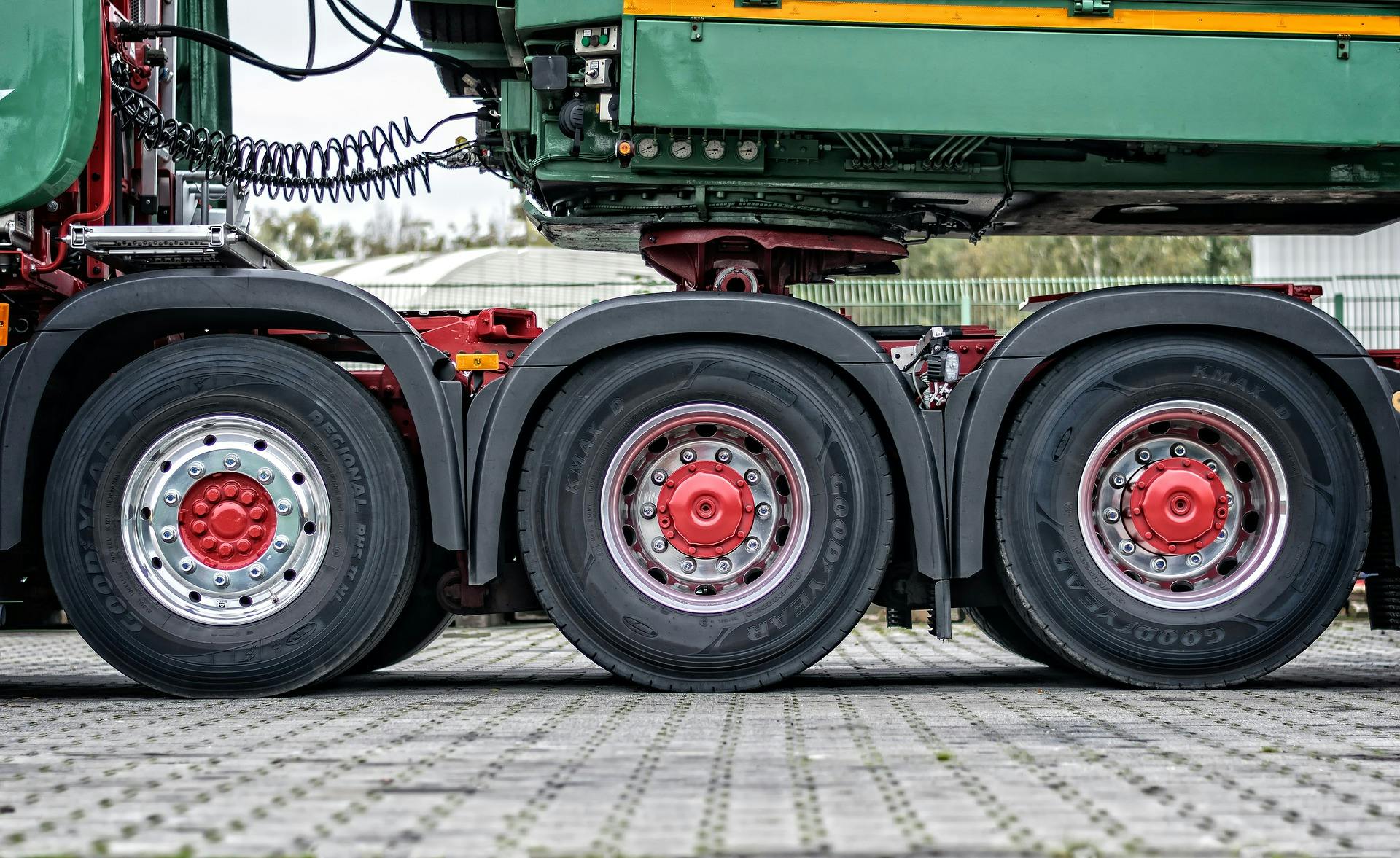
Preventing Unsafe Work Practices
To conclude, whatever your line of business is, it is your responsibility as a worker – and as a human being – to keep your eye out on any possible safety hazards. This will make you confident that both you and your colleagues are working in a safe environment.
If you believe there is a reason to report any safety fails, don’t hesitate to contact OSHA, the Occupational Safety and Health Administration. They might conduct a corrective action report and assess the circumstances where hazardous practices occur. After all, the consequences of unsafe work practices can sometimes, unfortunately, be lethal.
last modified:09.27.24
Recent Posts
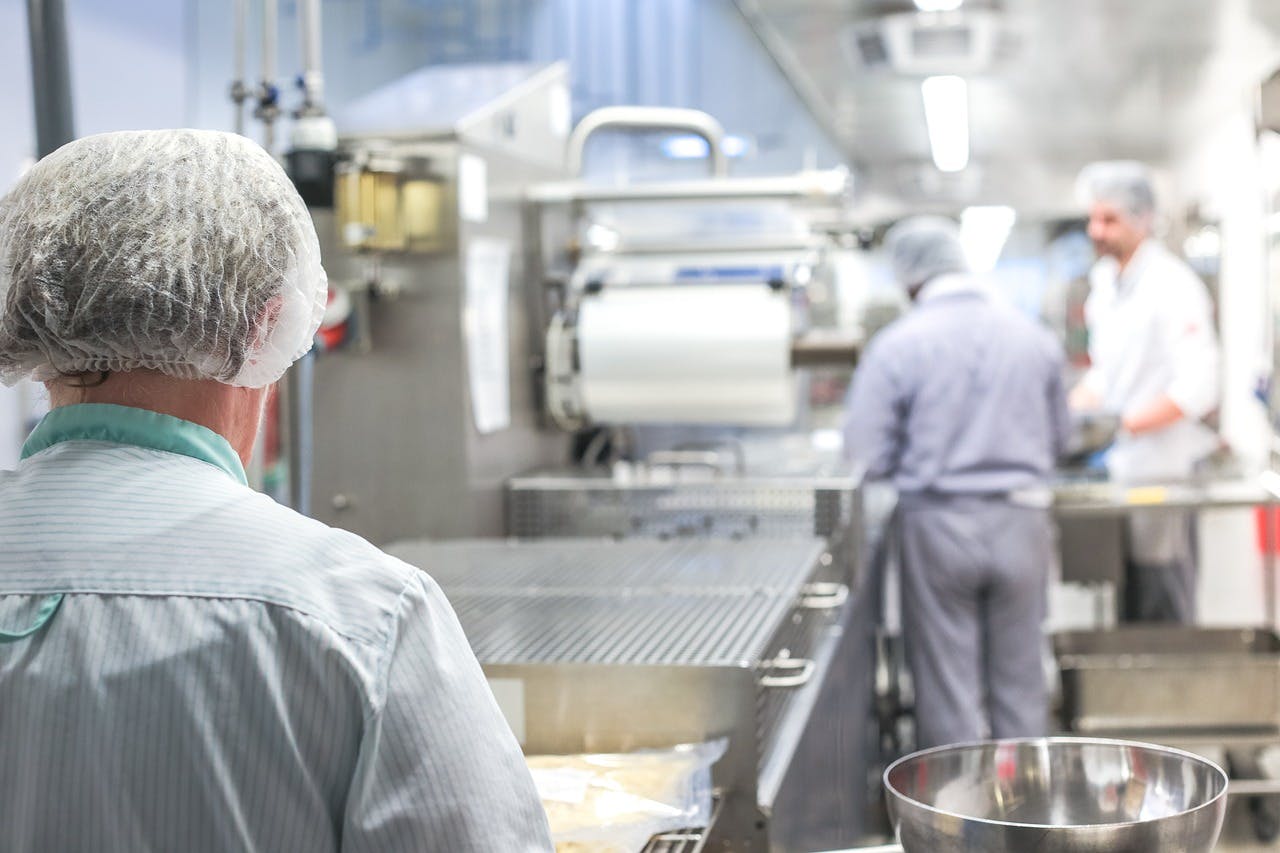
Top 5 Food Processing Industry Trends That Matter in 2025

Keeping Up With Compliance Trends 2025
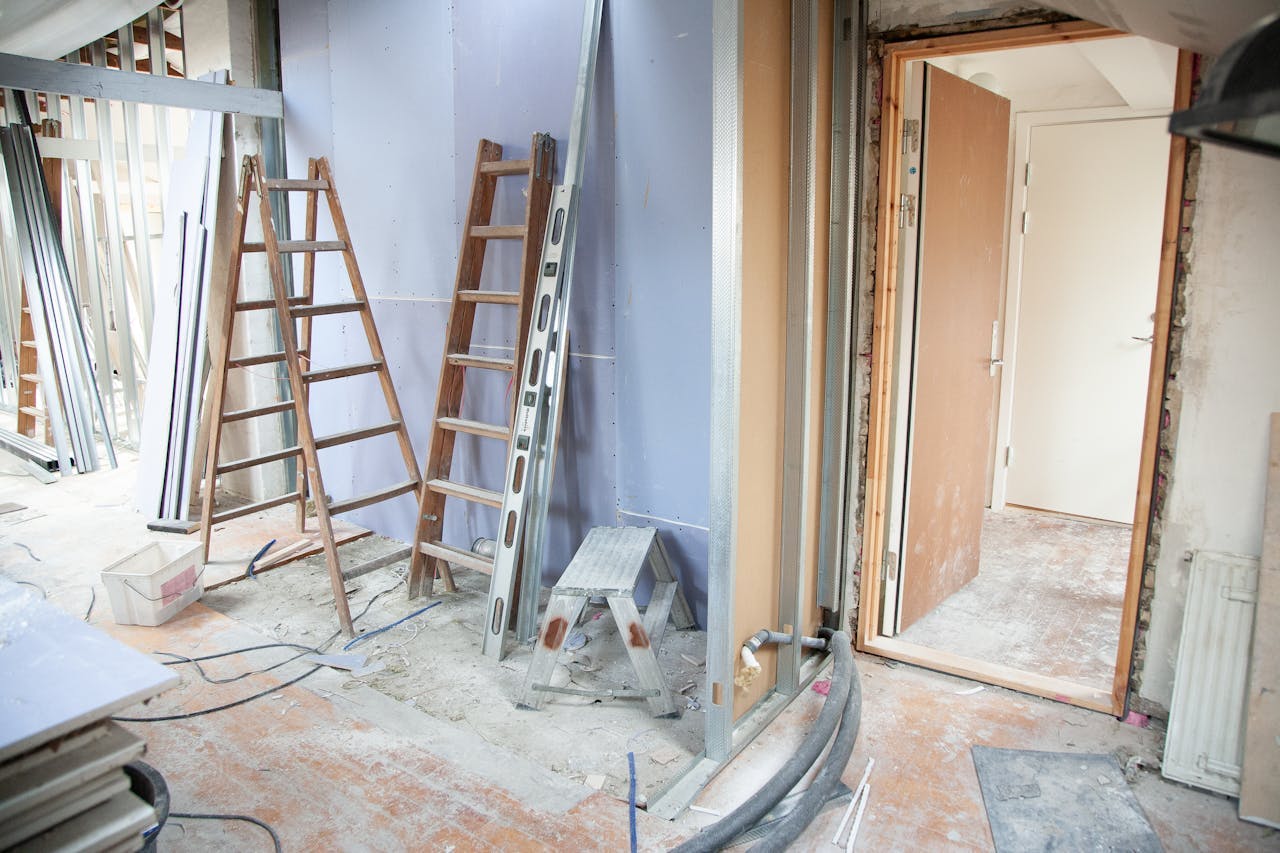
OSHA Ladder Safety 101: How to Meet OSHA Standards and Keep Your Workers Safe
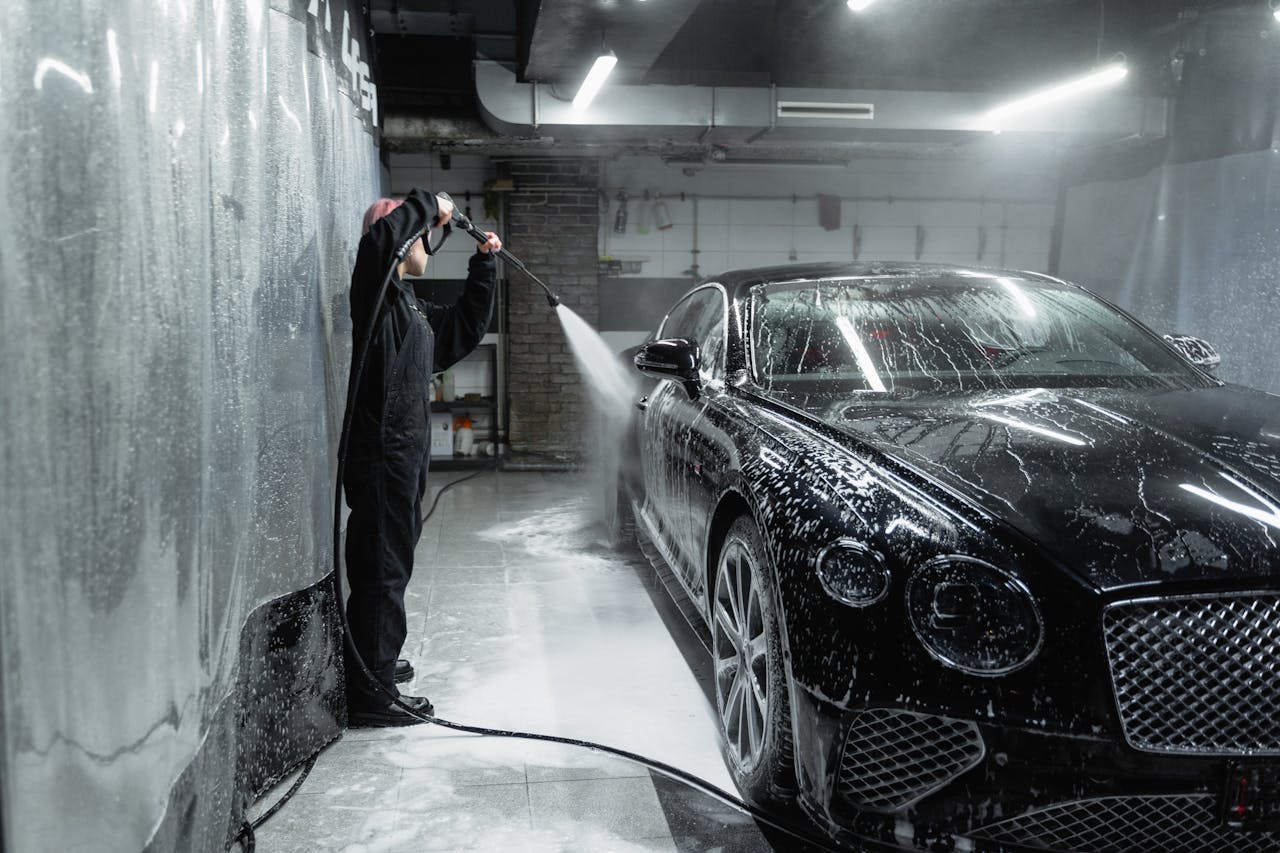
Car Wash Safety: Regulations & Best Practices You Need to Know
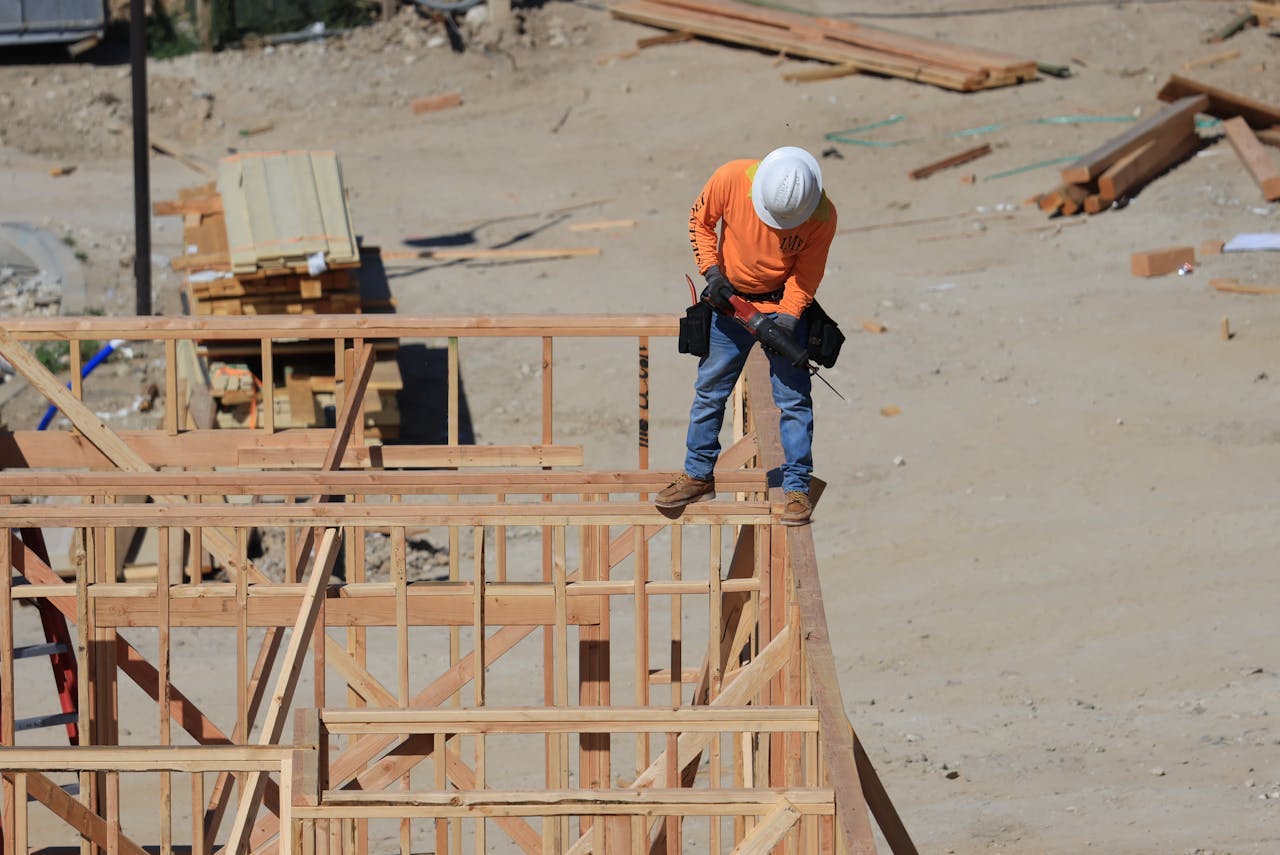
Fall Hazards At Work: How To Keep Your Employees Safe
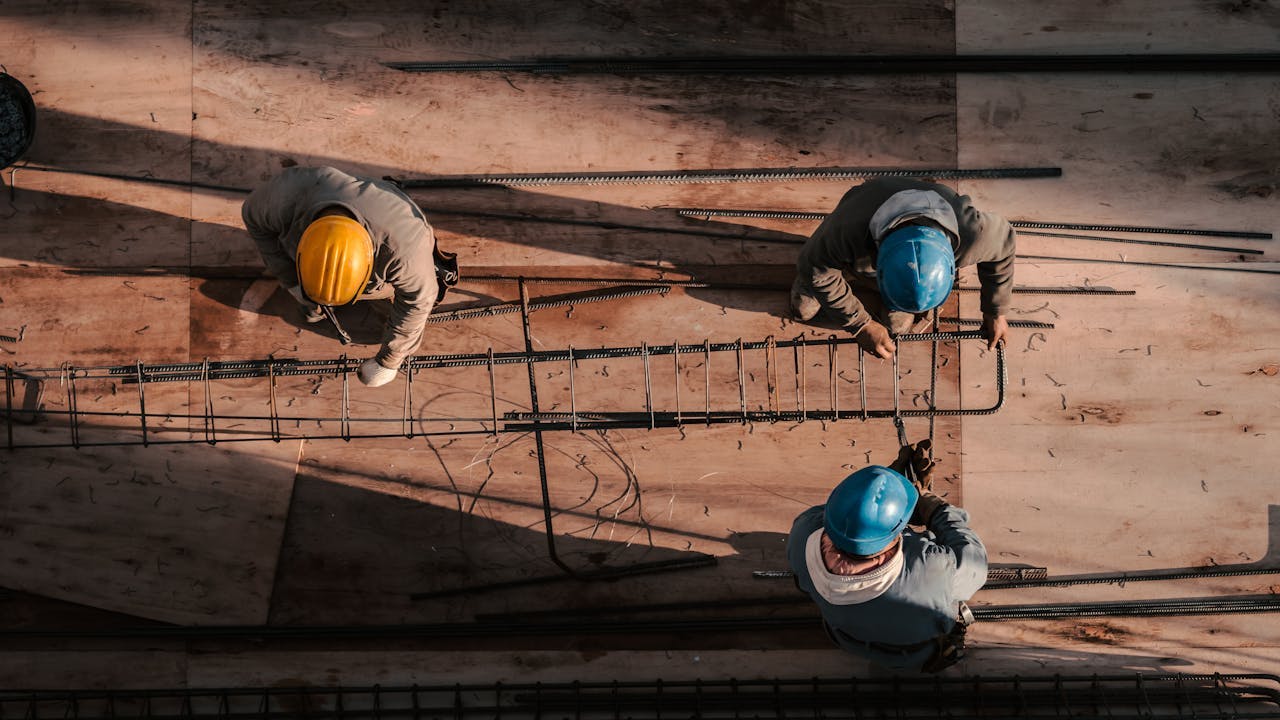
The High Price of Neglect: OSHA Violations and Penalties

Expert Advice on Preventing Workplace Electrical Hazards
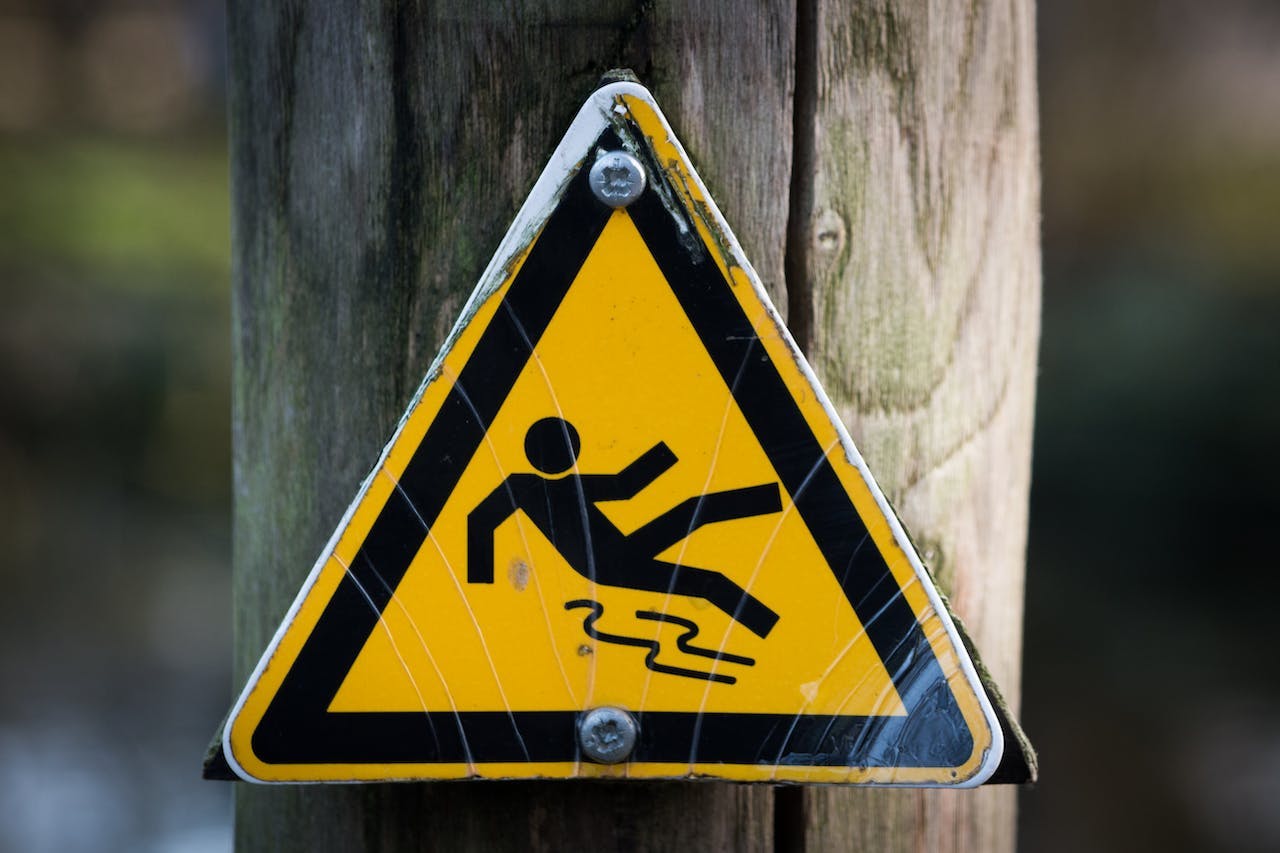
Slips, Trips and Falls in the Workplace: Best Practices

HSEQ Audit: The Complete Guide
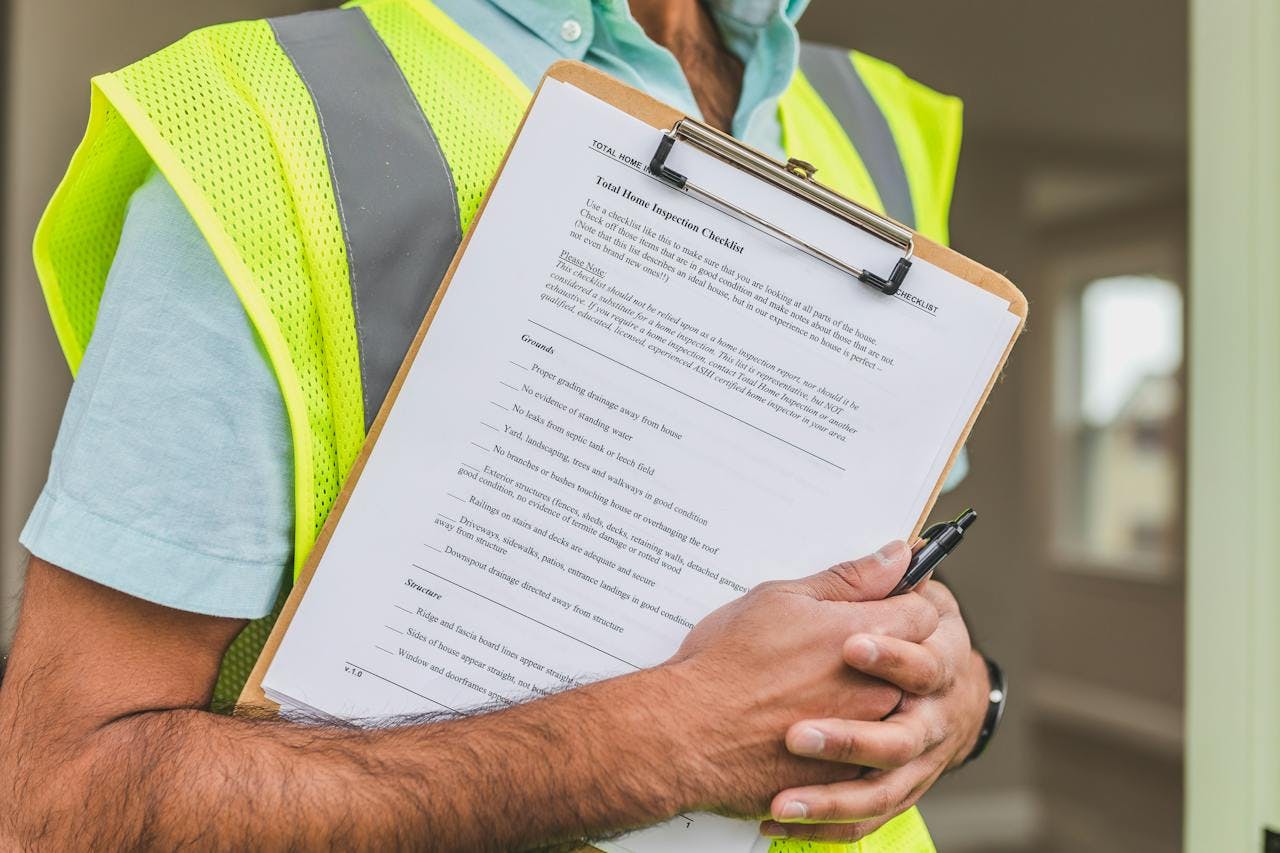
Improve Safety: Inspection Management Software Benefits
